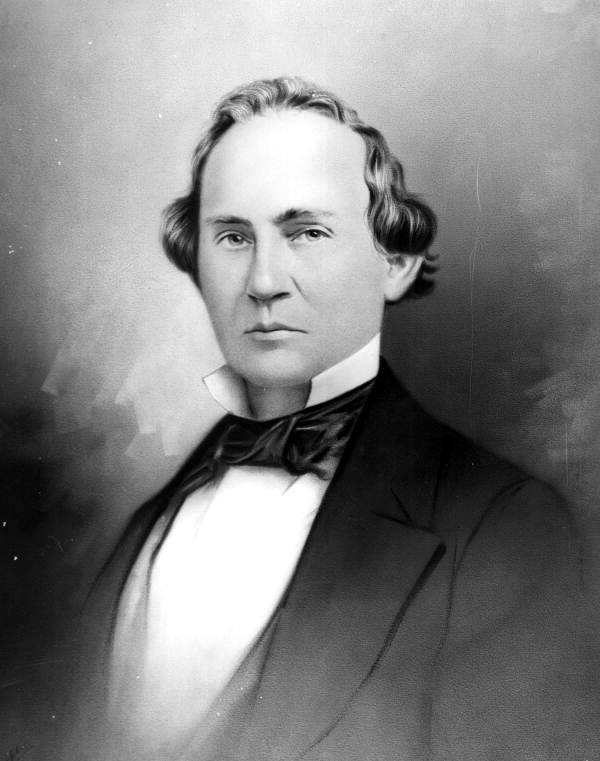By Blake Bell
Prior to Bird Pearson inhabiting a bunker home on Chinsegut, Native Americans roamed the hill they named Tiger Tail for food and resources. Florida was at a turning point in history and the inhabitants of Tiger Tail would witness it all.
Beginning around 1816, the early battles of the Seminole Wars were waged throughout the scarcely populated swamplands in Spanish-controlled Florida. During this period, Florida was a mecca for an ever-dwindling Spanish presence, British loyalists, freed slaves, and a range of Native American tribes. In 1821, the United States and Spain entered an agreement that would soon change the dynamics of these early dwellers. The Adams-Onís Treaty officially saw Spain relinquishing control of its prized colonies and incorporating Florida as part of the United States. While still not officially a state, the new territory combined two Spanish colonies of East and West Florida. The new territory created dual capitals, Pensacola and Saint Augustine. Following the Treaty, Florida would see an aggressive push by the federal government to populate its new territory and a period of unrest between the United States and Native American
tribes.
During this period, Native Americans in the Hernando County area were largely part of the Timucua Tribe. Hernando de Soto, in documenting his Florida landing and subsequent exploration in 1539, discussed his encounter with unfriendly Native Americans north of Tampa Bay. This early written account is believed to be in the Hernando County region. At this time, the hill on which the Chinsegut Manor House stands today was called Tiger Tail by early dwellers. In archeological digs, the Tampa Bay History Center has discovered remnants of life near Tiger Tail. It is believed, through these discoveries, that the Timucua Tribe did not live on top of Tiger Tail but instead built homes around the largest body of water at the foot of the hill, Lake Lindsay.
In 1842, the Armed Occupation Act was passed to populate the new territory of Florida with United States citizens. One year following enactment, a South Carolina lawyer turned Alabama planter named Bird Pearson would set his eyes on a hill called Tiger Tail. Pearson was born in the Union District of South Carolina in 1803. He studied law at South Carolina College (now the University of South Carolina) and, for a stint, served as the South Carolina State Solicitor. After leaving his home, he relocated his family to Faunsdale, Alabama, where he built and operated a plantation. Following financial troubles, he searched for opportunities in a new territory where land was readily available. In 1843, he made his way to the new county of Hernando, where he found the highest geographic point and staked his claim. Upon his arrival, there is still plenty of unrest in the area. U.S. soldiers are stationed throughout the area, attempting to keep the peace. Memories of the Dade massacre continue to be told as local lore and the murder of Charlotte Crum at the hands of remaining Seminole Indians is fresh on the minds of many early pioneers. With all the unrest, Pearson constructs a bunker on Tiger Tail to protect his newly acquired 5,000 acres of farmland. From 1843 to 1851, Pearson and his family lived on Tiger Tail. Pearson becomes the first attorney in Hernando County, providing legal advice to pioneer families in the region. Pearson supported states’ rights and secession leading up to the Civil War. In 1850, Pearson was a delegate to the 1850 Nashville Convention, where attendees from slave states discussed and supported secession from the Union. In 1851, Pearson decided to move his family from Tiger Tail to Jacksonville. In 1855, Pearson was elected to the Florida Supreme Court. In 1859, Pearson died in Jacksonville but his legacy lived on—his daughter, Floride Fleming, served as the fifteenth first lady of Florida from 1889-1893.
Blake Bell, an attorney, served as the Mayor of the City of Brooksville for two terms. He serves on the Board of Trustees for the Tampa Bay History Center, teaches Sunday school, chairs the Ederington Family Foundation, and is a member of the Withlacoochee Chapter of the Sons of the American Revolution. A seventh-generation Brooksvillian, Bell is a direct descendant of Hernando County founding families Ederington, Mein, and
Snow.

